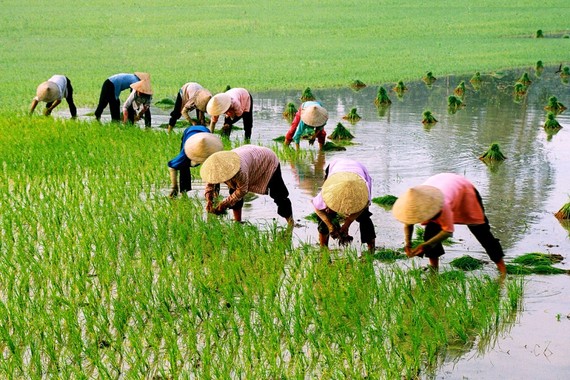Image Source
Vietnam is not one to dwell in the past, knowing it is an exercise in futility. Re-living the misery and grief of the Vietnam War will only hinder plans for economic and trade development and result in a dead end.
The Fall of Saigon on April 30, 1975, meant victory for communist North Vietnam and a unified country but the post-war conditions were not friendly. Vietnam was economically and politically isolated from countries opposed to its form of government. Farmlands, infrastructure, and industries were heavily damaged from artillery fire and bombings. The people were not technically educated and skilled and there was a lack of equipment to work the fields. The shortage of food and medicines led to thousands dying from starvation and diseases. Much more fled the country to escape persecution and died at sea.
The re-education camps erected by the communists imposed hard labor on the former military troops of South Vietnam and their supporters.
In 1986, the General Secretary of the Communist Party of Vietnam Le Duan died. He, along with other top party officials, was responsible for the centrally planned economy that was in use after the war until Le Duan's death. Vietnam was a devastated country, with soaring inflation and stagnant growth. The newly elected party secretary during the 6th National Congress was the more liberal Nhuyen Van Linh. In December 1986, the Doi Moi policy of a market-oriented economy was launched.
Doi Moi reforms the decentralized economy allowing businesses to be private and autonomous. It gave them permission to deal with the foreign markets and the economy to be influenced by the global market. The agricultural system was eased, allowing farmers flexibility in order to achieve higher productivity. The effects of a market-oriented socialist state were immediate.
Four years later, in 1990 continuing up to 2012, Vietnam's growth rate was 7 percent annually. It slowed down to 6 percent in 2012 due to the global slowdown in the economy yet it is still an impressive growth. Poverty was reduced by 2 percent per year and twenty years after the reforms policy, 30 million people had been removed from the poverty list. Today, Vietnam is one of the top exporters of rice, coffee, and pepper. It has established diplomatic and economic ties with most of Western Europe, China, ASEAN member nations and Far East Asian countries. The United States resumed normal ties with Vietnam in 1995, two decades after the war ended and a bilateral trade agreement in 2000.
In spite of the controversial US involvement in the Vietnam War, the US is viewed favourably by the Vietnamese people. During the war, United States Army had killed South Vietnam civilians, including women and children. An exact accounting is not known but declassified files show that the killings were not war-related. Families in their homes, farmers tilling their lands and innocent people were rounded up and slaughtered like animals. The infamous My Lai massacre in 1968 stands out as the most atrocious US crime against the Vietnam people. An army officer, 2nd Lt. William Calley Jr. was convicted but eventually given a presidential pardon.
But, if the US forces had killed Vietnam civilians, South Korean soldiers outdid them in the brutality and number of massacres and rapes inflicted on the Vietnamese. Park Chung-hee, the dictator-president of South Korea during the Vietnam War, had sent more than 300,000 soldiers to help the US troops fight against the communist North Vietnam. The former president, father of current president Park Geun-hye, was eager to please America and receive the $8,000 payment for each soldier sent. There were about 12 recorded series of massacres perpetrated by Park's troops in villages and around 5,000 Vietnam civilians tortured, maimed and killed by grenades, assault rifles, and bayonets. Thousands of young women and girls were forced into sexual slavery by these soldiers and turned into comfort women.
Probably the main difference between the war crimes committed by the US Army and the South Korean military is the acknowledgement and apology or lack of them. While the United States tried their soldiers in court and accepted the millions of South Vietnam refugees into their country, South Korea adamantly refuses to admit to, much less apologize, for its atrocities. Yet, without hesitation, they have been pestering Japan for years for compensation and official apologies for their own comfort women. In spite of the 1965 treaty wherein Japan paid $800 million to Park's father and the 1993 Kono statement apologizing for Japan's role in the World War II, Korea is never content. Luckily for them, Vietnam doesn't hound them for reparations and statements of remorse. In a sign of reconciliation and for improved trade between the two countries, Vietnam and South Korea have an active free trade agreement.
The Vietnam government and its people preach the gospel of tolerance and forgiveness, peace and humanity because it wants to move on and look to a brighter future.

